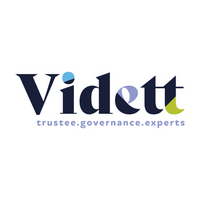4 tips to tackle poor pensions governance
When people hear the word governance, I expect many bury their head in the sand thinking it’s a massive scary subject and they don’t know exactly what it covers. Yet it really isn’t something to ignore.
Poor pensions governance can have damaging consequences from costly errors and failure to meet regulatory compliance, to poor member experience, missed investment opportunities and reputational risk for an employer. Outsourcing can help ease the burden and may bring additional benefits such as more efficient decision making, but it won’t eliminate risk entirely. So, here are some top tips to help you stay on top of pension governance.
Tip 1: remember pensions are a valuable employee benefit
Good governance is important for employees and members. An efficient pension scheme gives employees confidence and helps protect them at both a financial and personal level. Pension scams are often in the news and are the perfect example of why good governance processes are vital for members.
Pension is a valuable component of your pay and benefits package and the employer contribution (and tax relief) is free money that needs to be well managed. Good governance shows employees their employer values them and wants to look after their interests. Poor governance says the opposite – we all get fed up with poor customer service and it makes a bad impression.
A few simple things to do are:
- connect with employees regularly to check details held by the pension administrators are correct and improve member engagement
- make sure pension members have a contact number other than the administrator’s helpline so they know where to go if the administrator is unresponsive
- seek periodic feedback from members on their experience and look for key trends and issues.
Tip 2: getting the right governance structure now will save time, pain and cost in future
Companies and trustees can choose to outsource and delegate day-to-day pension scheme management, but trustees can’t delegate their responsibility, so having a sound governance process is essential.
At the outset, establish a good governance process with clear lines of responsibility and accountability. Identify the risks within that process (i.e. how things might go wrong or what might be missed and slip through cracks) and ways to reduce those risks. Then review policies and processes from time-to-time to ensure they remain appropriate and effective.
Here are some steps to help you:
- organise training – does everyone know the risks of poor governance? Is information easily accessible?
- understand legal requirements for governance and what good practice looks like. If needed, get some help
- ensure issues can be reported easily, with named individuals responsible for different elements of governance
- know what you have in place and how that is monitored. Clear reporting is important – a dashboard summary can be helpful so you can see at-a-glance whether key performance indicators (KPIs) and service level agreements (SLAs) are on track and if there have been any member complaints
- carry out small checks and reviews on a regular basis rather than doing full-scale reviews on a relatively infrequent basis. As well as helping you identify (and fix) issues sooner, it will make the task much less daunting and time consuming
- remind everyone of the key risks regularly!
Tip 3: keep current
Changes in pension regulations and new legal rulings can impact your scheme and/or its benefits. For example, The Pension Regulator’s (TPR) proposed new single code of practice will require scheme Trustees to establish an ‘effective system of governance’ and have documented policies for many areas of governance. The TPR website can be a very helpful place to look for information on legislation changes.
Keep your knowledge up-to-date so you can reduce issues now and in the future, and hold providers/advisers to account (another regulatory requirement). Getting independent help to do this can be really time and cost efficient.
Tip 4: consider outsourcing
Using a third party can help improve your governance processes. For example, many pension schemes are now appointing a professional trustee to their board to help manage the scheme and make decisions more effectively.
If services are outsourced:
- choose providers wisely – not only in terms of quality of their service, risk management and reporting, but also their ability to work well with your existing team and processes
- have a clear idea of your role in the scheme going forward and what providers need from you
- develop a good relationship with all providers – regular, open dialogue means they’re more likely to raise issues sooner rather than later
- be clear on what you’re paying a provider to deliver, how this will be reported back and the mechanisms in place if expectations aren’t being met – monitor them regularly to ensure they’re meeting agreed KPIs ands SLAs
- be aware of your pension administrator’s accreditation framework – check the outcome of any internal controls audit (e.g. AAF01/06) and follow up on any issues arising.
Supplied by REBA Associate Member, Vidett
Leading the way in professional trusteeship & governance








